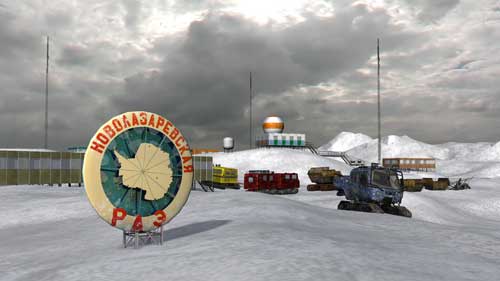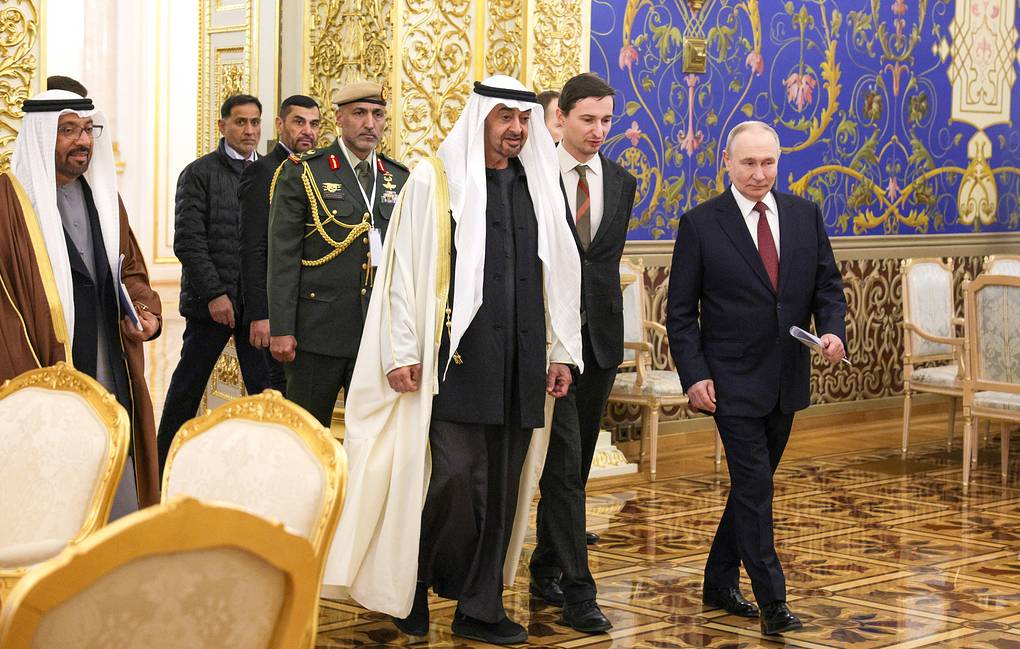
Is Russia Preparing to Challenge the Status Quo in Antarctica? (Part One)
Is Russia Preparing to Challenge the Status Quo in Antarctica? (Part One)
In his statement last January commemorating the 200th anniversary of the first Russian Antarctic expedition, President Vladimir Putin expressed admiration for “generations of Russians who have dedicated their lives to studying Antarctica.” He acknowledged the “huge contribution” of Russian science in exploring the world’s southernmost continent, underscoring Russia’s messianic role, which is to “serve the good of all of whole humankind” (RIA Novosti, January 28). Subsequently, the deputy chairperson of the Russian Security Council, (former prime minister) Dmitry Medvedev, declared that Russia is a leading player in Antarctic research and exploration as well as a power with strategic interests of its own, “ready to construct equal partnerships with all the parties involved [in the southern polar region]” (RIA Novosti, January 29). To some extent, this pronouncement could signify Russia’s readiness to challenge the exiting status quo and might serve as a first step toward the elaboration of a more assertive or aggressive Antarctic Strategy. Unlike the document outlining Russia’s policies toward the South Pole, which was adopted in 2010 (Rossyiskaya Gazeta, March 31, 2011), the new strategy—the early outlines of which we may now be seeing—could be more inclusive in nature and take into consideration the rapidly changing reality both on the continent and beyond.
Russia’s growing interest in Antarctica is premised on the fact that the 1959 Antarctic Treaty System (ATS; came into force in 1961) expires in 2048. According to the ATS, the continent has the status of a fully demilitarized and non-nuclear zone; similarly, any types of pollution and/or extraction of natural resources are prohibited there. Furthermore, all countries that renounced their claims on the continent are prohibited from any types of actions/activities there (Ats.aq, accessed June 5). The Treaty divides countries with Antarctic ambitions into three main groups:
– Pre-treaty claimants (PTC)—Australia, Argentina, the United Kingdom, New Zealand, Norway, France and Chile.
– Reserved claimants (RC)—Peru, the Soviet Union/Russia, the United States, the Republic of South Africa (RSA).
– Non-claimants (NC), among whom the most powerful player is China.
As noted by international law consultant Jill Barrett, for as long as the ATS remains in force, “[T]he claimant states keep their claims in a box […] with a lid on it.” Among them, China and Russia are awaiting 2048 with particular enthusiasm (BBC News—Ukrainian service, October 29, 2018). Antarctica is luring the world’s most ambitious players for a number of reasons:
– Mineral resources, including coal, iron, copper, zinc, nickel, chromium, uranium and gold (Mining-enc.ru, accessed June 4, 2020);
– Hydrocarbons, with proven reserves in the Ross Sea (inside the Southern Ocean surrounding Antarctica) alone accounting for 50 billion barrels of oil and more than 100 trillion cubic meters of natural gas (Zvezdaweekly.ru, January 31);
– Marine and bio resources (Antarctic has more than 80 percent of global clean drinking water reserves);
– Natural (instrumental for tracking/understanding climate change) and space-related scientific research.
Speaking about Russia’s role and ambitions in Antarctica, one particular aspect needs to be underscored: the Russian political elites’ decades-long, deeply rooted sense of their country being unjustly marginalized. Russia (and the Soviet Union before it) considers itself to be a prime pioneer on the continent but one that failed to capitalize on its geographic discoveries, and which was subsequently marginalized by more savvy players (Zvezdaweekly.ru, January 31). Historically, both the Soviet Union and Russia have perpetually resented Western players’ leading positions in Antarctica, considering it an area of Soviet/Russian special interests (Topwar.ru, May 28, 2019). Such rhetoric still dominates Russian mainstream discourse. For instance, Konstantin Strelbitsky (one of Russia’s most prominent naval historians) stated that “Antarctica is the continent of Russia’s leadership. It was discovered by the Russian navy and has been actively explored by Russian scientists, starting from the mid-20th century” (RT, December 1, 2019). This same logic is visible in the reflections of the head of the Russian foreign ministry, Sergei Lavrov, who stated earlier this year that Antarctica plays an essential role for Russian diplomacy, since “[I]t helps us to transfer our knowledge and experience, demonstrate our achievements, thereby strengthening Russia’s prestige around the world” (Tvzvezda.ru, February 2). In other words—aside from geopolitical and geo-economic factors—the Russian leadership sees the perpetually ice-covered continent (and its exploration) as an integral part of Russia’s “soft power,” both now and in the future.
That said, Russia faces two paramount and long-lasting challenges to its goals for Antarctica. First, the country has for decades been underfinancing and gradually forfeiting its leadership when it comes to general research and exploration. As stated by one of the leading explorers of the High North and the Arctic region, Hero of the Soviet Union (and Russia) Artur Chilingarov, Russian polar research facilities are in crisis and require “immediate and profound reforms.” He noted that he had visited foreign Antarctic facilities on a number of occasions and “this comparison is not in our [Russia’s] favor,” either in terms of technological sophistication or in other aspects. Chilingarov warned that if Russia wants to remain among the leading players on the continent, some serious (and costly) efforts are required (Newizv.ru, July 16, 2018).
Second, Russia faces growing foreign competition, with steps made in recent years by China and India arousing particular concerns in Moscow. Russian sources claim—with a great deal of apprehension—that despite being a “late entrant” (the Zhongshan scientific station at Larsemann Hills was constructed only in 1989), China has already made tremendous progress in Antarctic research and exploration, as (symbolically) demonstrated by numerous Chinese toponyms for areas or features across the continent. Russian sources conclude that China is determined to eventually become Antarctica’s leading power (Km.ru, October 26, 2011).
As noted by the honorary president of the Russian Geographic Society and professor at the Russian Academy of Science, Vladimir Kotliakov, a combination of these two factors—dwindling resources and growing international competition—should be viewed as a serious challenge for Russian interests on the world’s southernmost landmass. He also asserted that local stations—whose initial purpose was related to scientific research—are now becoming tools of geopolitics, which could become a challenge in the future (Rgo.ru, January 28, 2020).
With the ATS coming to a close within the next three decades, an international struggle for Antarctica is bound to intensify. And over this time, Russia can be expected to progressively sharpen the articulation of its claims to the frozen continent.


